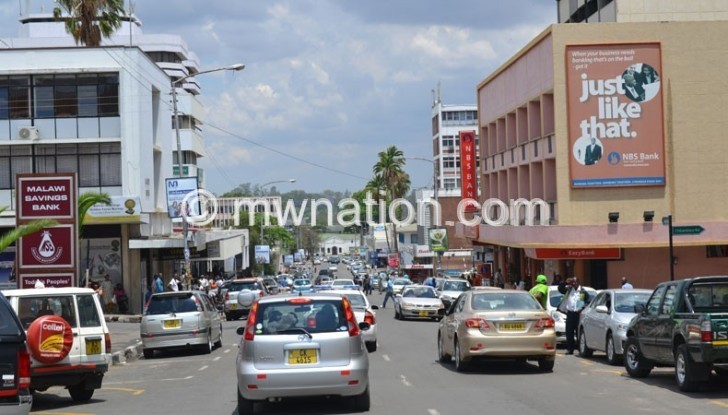Poor economy hits real estate sector
The real estate sector has been hit the hardest following cost of living crisis, resulting in declining occupancy rates in most commercial properties in the country’s central business districts (CBDs).
Surveyors’ Institute of Malawi president Desmond Namangale confirmed the development in an interview last week, saying the development, especially in Blantyre, is a result of limited parking spaces, relocation of some government ministries, departments and agencies (MDAs) to the capital city, Lilongwe and the challenging economic environment characterised high interest and inflation rates and the 44 percent kwacha devaluation effected in November 2023.

He said: “Just like any industry, real estate also reacts to the micro and macro-economics of any economic environment.
“As you might know that devaluation and inflation weaken the buying power. When such happens, people have to find alternatives by downgrading or reducing on consumption.”
Namangale, who is also property management firm Knight Frank Malawi managing director, said on a larger-scale, real estate is affected by demand and supply.
“The Covid-19 pandemic resulted in most tenants surrendering the spaces they were occupying to the landlords; hence, creating vacancies in the CBD,” he said.
Namangale said some office occupants are opting to do their business activities in the residential areas due to limited parking spaces for themselves as well as their clients, thereby creating vacancy in the CBD.
In a statement, property management firm Icon Properties plc said stifled business confidence continues to hit the retail property sector as tenants struggle to stay afloat and fulfil their rental obligations.
However, the firm said residential rental markets, particularly in the middle-income sector, remain buoyant spurred by steady demand from young upwardly mobile professionals.
Icon Properties plc board director Graham Chipande said during the firm’s 2022 annual general meeting in August in Blantyre that the property market outlook is mixed with the economy going through a number of pressures.
In its 2024 Emerging Trends in Real Estate, the Urban Land Institute and PricewaterhouseCoopers US said industry leaders no longer expect a u-turn to the way things were before the pandemic.
Instead, the firm said industry leaders have accepted the possibility that “a lot of people won’t be returning to the office after all or at least not nearly as often”.
Reads the report in part: “This has profound implications not only for office owners, managers and brokers, but also the nation’s downtowns and other property sectors that depend on a vibrant office market.”
Following the kwacha devaluation and subsequent increases in prices of commodities, cost of living has gone up.






Thank you for the auspicious writeup. It in fact was a amusement account it. Look advanced to more added agreeable from you! By the way, how could we communicate?